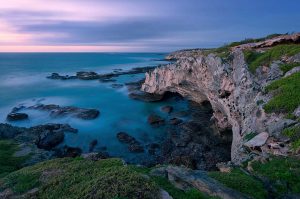
Umm Muhammed Umar
Environmental groups and local fishing communities have obtained a stunning victory after a successful urgent interdict against a seismic survey taking place along the west coast, which has been viewed as a battle of the underdogs against large conglomerates.
The Western Cape High Court ordered Australian multinational searcher ‘Seismic’ to cease all seismic survey operations. The survey was taking place in the Western Cape, with plans to move from the Namibian border past Cape Town, and as far as Cape Agulhas, covering an area of 22 000 kilometres and 10 000 square kilometres, respectively. Radio Islam spoke to Neville van Rooy, Community Outreach Coordinator for the Green Connection.
This had been the third urgent interdict in relation to seismic surveys along the country’s coastline, and Van Rooy said that this victory was extremely important for the Green Connection as well as for the fishing communities of the West Coast, as far as the Northern Cape, and even in the Western Cape area as well. He said that they were delighted, but also wanted to send out a strong message to people who believed that they could simply disrespect people’s rights by not consulting with them meaningfully around issues pertaining to their livelihoods, and also to the ocean, which was so close to people’s heritage in that area. Van Rooy said,” we are so disappointed that our government keeps banging on this door of fossil fuels and, you know, forcing it down on people without consulting them properly.”
Van Rooyen explained that the issue was of great concern as there would be a boat with devices, conducting explosions on the ocean floor, looking for oil, on a migratory path way for a fishing species that fishermen were dependent on. Fishermen would be going in with their small boats, in an area where reconnaissance would be taking place, and they would not be granted recognition. Van Rooy said, “They are being marginalized, they are not being consulted, and this is the issue that is very crucial for us.” He added that the complex ecosystem that people were dependent on was not being respected.
The survey began on the 15th of January 2022, despite protests and letters of demand having been sent. A disturbing point to note is that the companies involved had failed to apply for environmental authorization, while hailing from parts of the world where environmental laws are extremely strict. According to Van Rooyen, companies were being called on by the South African government, which ‘advertises’ our ocean: “Companies can come, and come and lease, and come and do this development in our ocean…… and you know, that doorway is opened by our government, and we are really disappointed in the way they are opening the doors without, you know, recognizing that there is already an existing local economy that needs to be respected in this area.”
There has already been damage done, as can be seen by the fact that fisherman have to go as far as Hout Bay, and beyond, to catch fish that would normally have been found in their shores, at Saldanha Bay. Van Rooyen said, “Now they have to go distances to get this business. (which) means more money (spent), that means more days away from home. This just means a more added burden onto the fisherfolk.”
Van Rooyen, despite the threat of the big cartels eyeing the wealth that could be obtained off the coast of Africa, remained confident, saying “We remain optimistic that our legal team will be able to fight them head on to keep them permanently away from our oceans, you know, bearing in mind that we are finding ourselves in this climate crisis, and the rest of the world is moving away from energy types such as gas and oil.”







0 Comments